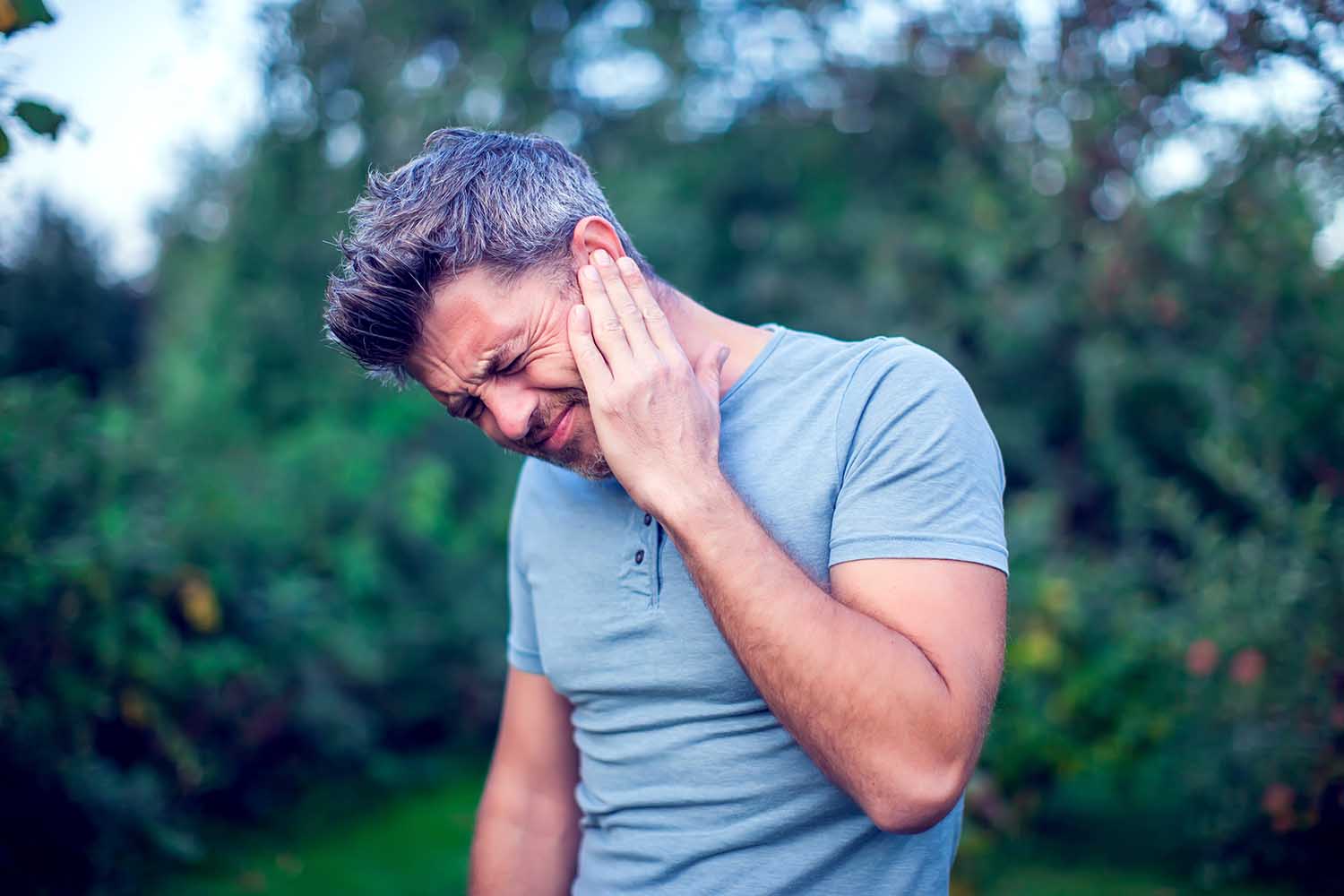Advertisement
10 Simple Home Remedies for Earaches
Your guide to prevention and finding relief
Fact-Checked
This article has been written and fact-checked by experts in the field.

Wait it out
Ear infections—sometimes called acute otitis media—are a common ailment especially in children. They can be accompanied by a range of symptoms including painful earaches, fluid draining from the ear, and difficulty hearing. To help relieve symptoms, or prevent earaches altogether, check out these 10 home remedies.

Although earaches can be a pain, they usually go away on their own within a few days. In children, it’s estimated that up to 85 percent recover from acute otitis media (the classic ear infection) spontaneously, without the need for antibiotics. While you wait, watch symptoms carefully and contact your doctor if you begin to experience more severe symptoms such as pus or blood oozing from the ear, high fever, or swelling.
Apply a hot or cold compress

Waiting for symptoms of an infection to subside can make you feel helpless, but a cold or warm compress may provide some comfort. Try wetting a washcloth with (manageably) hot or cold water and laying it over the ear that’s bothersome. You may find one temperature more comfortable than the other. You can safely continue this soothing treatment until symptoms subside.
Stand tall and sleep upright

Ear infections occur when a bacteria or virus creates swelling in the ear’s passages—trapping fluid in the air-filled space of the middle ear. To relieve pain and pressure, and possibly improve healing time, stand tall and keep your head vertical. You can also try gargling salt water to help drain fluid from the Eustachian tubes. At night, try propping yourself up with pillows to encourage more drainage and help relieve pain. (This is your excuse to grab some popcorn, put your feet up, and fall asleep watching your favorite movie!)
Talk to your doctor about homeopathic/herbal eardrops

Though the research is still young, some studies suggest that herbal eardrops may delay, or even eliminate, the need for antibiotics in children suffering from acute otitis media. There are a variety of herbal eardrops available on the market, though more research needs to be done to determine the safety and effectiveness of this alternative treatment. Because of this and potential side effects, they are generally not recommended for use in children.
Get some fresh air

A little fresh air can go a long way, particularly for children. One way to reduce your child’s likelihood of developing an ear infection is to ensure they’re not exposed to secondhand smoke. That means no smoking inside the house, car (even with the windows down), or anywhere else in the presence of your child. Secondhand smoke is also associated with causing cancer, heart disease, and chronic lung disease, plus additional risks for children, who are especially vulnerable.
Increase vitamin D intake

Whether you get it from the sun or a supplement, vitamin D is vital to your health. Not only does it promote healthy bones and, therefore, reduce associated bone and muscle pain, but it may also play a role in earache prevention. One study of school-aged children found that vitamin D deficiency was associated with increased ear and gastrointestinal infections. Just one more reason to get outside!
Breastfeed if you can

The duration your child is breastfed may affect their likelihood of developing ear infections. Try to breastfeed your infant for at least six months to reduce the incidence of ear infections and associated earaches. If you bottle feed, be sure to do so standing up, and holding your baby upright. Avoid propping up the bottle or putting them to bed with it.
Take probiotics

Good bacteria are important for more than just a healthy gut. Available in certain foods like yogurt or supplemented as tablets, powders, and throat sprays, probiotics have also shown encouraging results as a method to prevent ear infections in infants and children. One study found that probiotics may prevent acute otitis media in children that are not already prone to ear infections, and they were associated with reduced prescriptions of antibiotics for any infection. More research is needed to understand strains, dosage, and their true potential.
Consider xylitol

This naturally occurring alcohol is found in many fruits and vegetables and is sometimes used as a sugar substitute in chewing gum and lozenges. Taken in appropriate does, studies have found that xylitol significantly reduces the likelihood of ear infections and the need for antibiotics in preschool children, though more research is needed as some people experience side effects. Giving xylitol once symptoms are present has shown no effect in treating ear infections.
Wash your hands

If there’s anything we’ve learned from the COVID-19 pandemic, it’s that washing your hands is one of the best ways to reduce the spread of germs. Whether it’s from light switches or doorknobs, toys, or keyboards, there are endless ways to pick up germs in a day. Ensure that you wash your hands properly and teach the little ones to do the same to help keep the whole family happy, healthy, and bacteria/virus-free!





